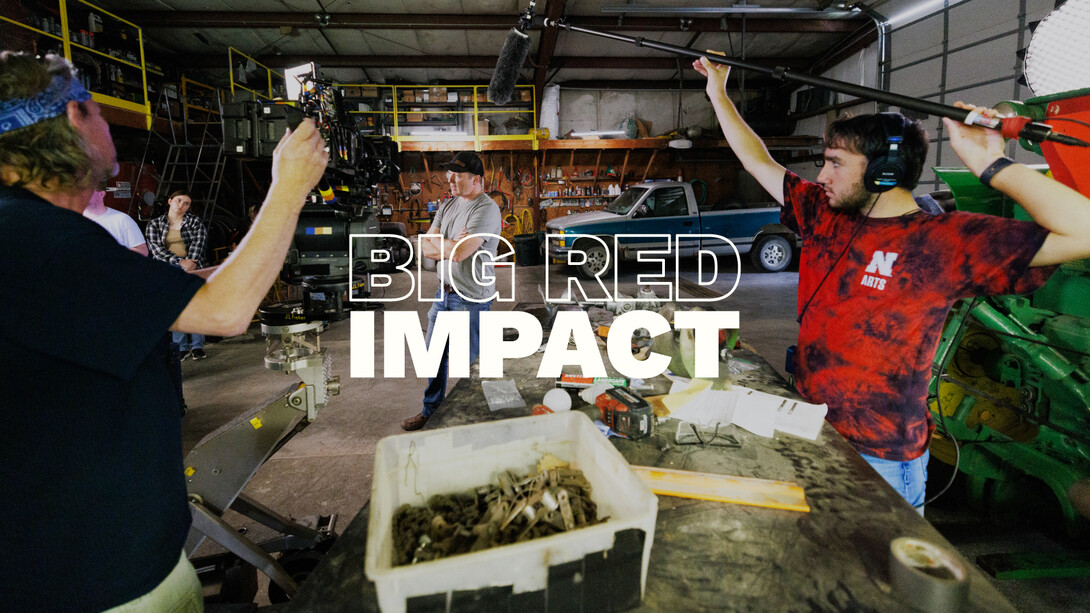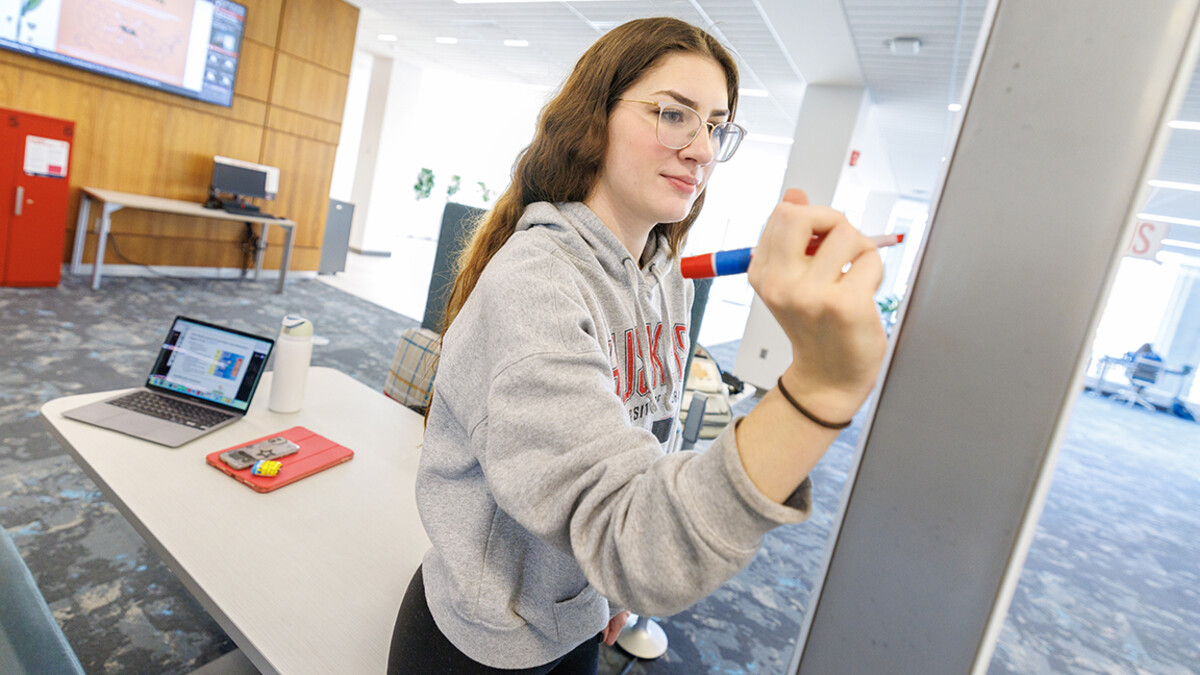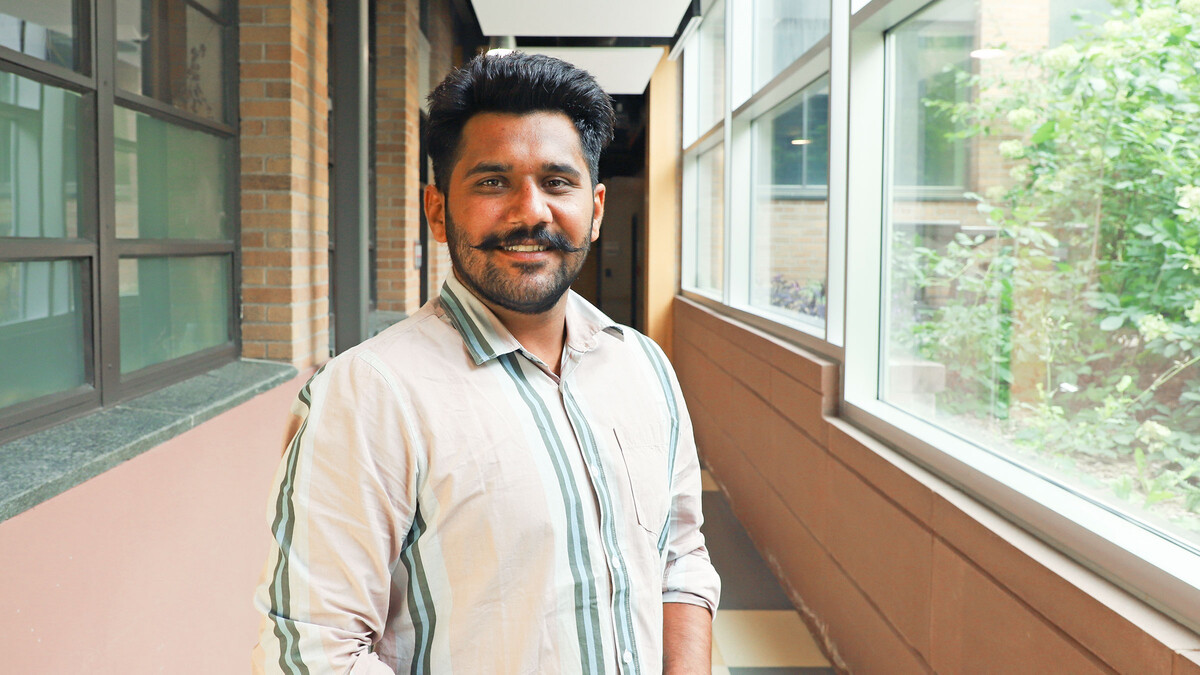
The University of Nebraska–Lincoln’s commitment to being a place where every person and every interaction matters is helping its students achieve greater levels of success from the classroom to career path.
"Our faculty are the heart of Nebraska, teaching students at every level and across much of the state," Chancellor Rodney D. Bennett said. "And, our staff are just as dedicated to supporting students, going above and beyond in roles that too often go unnoticed, doing everything possible to make certain that their experience is among the best in the nation."

Two key metrics that gauge a university’s strength — student retention and graduation rates — are on the rise for Nebraska U.
In the last five years, student retention between their first and second years has increased 3.1% and four-year graduation has increased 8.4%. During the last decade, the university’s four-year graduation rate has grown a robust 16.9%.
“These positive increases are the result of strategic actions we have taken to specifically increase degree completion and close equity gaps,” said Katherine Ankerson, executive vice chancellor and chief academic officer. “Our students are succeeding at greater rates because we have expanded opportunities available to them and reduced barriers to their success."
Katie Black | University Communication and MarketingExperiential learning
From their first day on campus, University of Nebraska–Lincoln students are offered access to hands-on experiences — from classroom lessons and lab experiences to campus jobs and internships.
The commitment to experiential learning is rooted in the university’s N2025 strategic plan. University-wide adoption has put Nebraska U on a path to having every student engage in at least one experiential learning opportunity before graduation by 2026.
“Our student experience is about the ability to explore, where you can find yourself, your community and thrive,” Ankerson said. “It is about offering opportunities that enrich the classroom experience, giving our graduates chances to develop the skills they need to succeed beyond the university.”
In the College of Journalism and Mass Communication, students "Do from Day One," gaining real-world experience through the Experience Lab. Launched in 2021, the Experience Lab offers a range of opportunities for students to learn about the industry — from Buoy, an agency for nonprofits, and Jacht, a student-run ad agency, to 90.3 KRNU, the campus radio station, and Nebraska News Service, a statewide wire service.
Jemalyn Griffin, assistant professor of practice in advertising, said the Experience Lab helps students build resumes and skillsets, while also benefiting the broader Nebraska community.
“Jacht worked with a local entrepreneur who started a business building high-end cutting boards, helping him raise $250,000,” Griffin said. “That’s the power of experiential learning. You’re not just talking theoretically — you’re implementing.”
Additional experiential learning programs open to students include UCARE, which gives undergraduates a chance to gain research and creative activity skills alongside faculty; the Scarlet Hotel, which serves as a teaching location for the Hospitality, Restaurant and Tourism Management program; and the College of Architecture’s Collaborative Studio, which offers students opportunities to participate in community-improvement projects.
Learn more about the university’s experiential learning success.
Student support
The university has also invested in an expanded array of support systems for students — bolstering strategic areas, including academic advising and mental wellness.
The Academic Navigator Team, integral to the boost in the current year's retention rates, launched in 2022 to identify and support students who show signs of falling off-track in their first and second years on campus.
Programs providing support, advocacy and removing barriers to success include the Center for Academic Success and Transition; Military and Veteran Success Center; Student Advocacy and Support; CASNR Cares; CAS Cares; First Generation Nebraska; Husker Pantry; Financial Well-being Ambassadors; Center for Advocacy, Response and Education; Lavender Closet; and the Nebraska College Preparatory Academy.
Programs promoting student excellence include the University Honors Program; Business Honors Academy; Complete Engineer program; First-Year Research Experience; and the Office of Student Leadership, Involvement and Community Engagement.
Mainor Ramirez Tercero, a junior nutritional science and dietetics major in the College of Education and Human Sciences, said the support system he found through the Nebraska College Preparatory Academy is a primary reason he has succeeded on campus. The program supports first-generation and low-income students throughout high school, preparing them for college.
“I didn’t know much about college, about majors and minors, or how to transition into college,” he said. “NCPA helped me develop those skills and think about my future. Without the NCPA, I probably wouldn’t have been in the right mindset to go to school and do well. I would have constantly been thinking about my financial stability.”
The university also offers robust supports to students who are dealing with difficult times in their college journey.
During 2022-2023, Counseling and Psychological Services provided more than 11,000 counseling sessions to students. In that same year, Services for Students with Disabilities worked on accommodation plans for 1,184 students.
“Our Student Advocacy and Support team helps students who are experiencing hardship find institutional resources and persevere,” Ankerson said. “Many of our colleges also have programs in place to support students through difficult times.”
Learn more about student support.
Awards and honors
University of Nebraska–Lincoln students are earning top honors nationally in competitions that represent their areas of study and research. Recent examples include:
- Luke Farritor earning $40,000 for being the first to identify a Greek word from a papyrus charred into a lump of carbon by the eruption of Mount Vesuvius. Farritor also teamed up with two others to win the $700,000 Vesuvius Challenge grand prize;
- Zein Saleh, who has been named a Goldwater Scholar;
- Back-to-back national championships for the Husker debate team;
- For the seventh-year in a row, students in the College of Architecture received national design honors from the Society of American Registered Architects;
- Journalism students Samantha Grove, Jordan Moore and Shelby Rickert were selected to participate in the 2024 Carnegie-Knight News21 program;
- Six students earned Fulbright awards to study, teach or conduct research abroad; and
- The 543 student-athletes who graduated in fall 2023 posted the highest cumulative grade point average in the university’s history at 3.415. A total of 426 student-athletes had a semester GPA at or above 3.0 for fall 2023. Nebraska Athletics leads the nation with 351 Academic All-Americans and the most recent graduation rate for student-athletes was 94%.
- The university’s McNair Program is serving 28 scholars during the 2023-24 academic year. Founded in 1986, the national initiative aims to increase the number of underrepresented students in doctoral programs.
Dedicated faculty, staff
Student success is built on support from the university’s nearly 6,000 faculty and staff.
Some key examples of faculty excellence include Kendra Ordia, an assistant professor who earned the 2023 Interior Design Educators Council (North America) Teaching Excellence Award; Elizabeth Lewis, who was honored with the 2023 Catalyst Award from the Nebraska Association of Teachers of Science; Sue Sheridan, who is the first Husker faculty member to be elected to the National Academy of Education; Deepak Keshwani, who was recently honored for exceptional abilities in teaching, research and extension education; Marianna Burks, who is dedicated to connecting students of color with STEM careers; and Kwame Dawes, a renowned poet and global leader who has been named the next Poet Laureate of Jamaica.
Staff also play a key role in supporting the student experience. A prime example is Gretchen Hamilton, who does all she can to make the Cather Dining Hall a home away from home for students. Click here or watch the video below to learn about Hamilton’s dedication to student success.
Affordability
Nebraska is committed to offering an affordable education, helping graduates enter their careers with reduced debt pressures.
Nebraska students who take out loans to pay for college typically borrow $21,000, which is nearly $8,000 less than the national average of $28,950. Success in lower debt load for Huskers is due to Nebraska offering competitive Big Ten tuition and strong financial packages.
Student debt is benefited through innovative scholarships, including the new Presidential Scholars Program, which covers full cost of attendance plus a $5,000 stipend for all Nebraska students who earn a 36 on the ACT; and Nebraska Promise, which covers undergraduate tuition for all students who meet academic qualifications and have a family income of $65,000 or less.
Nonie Mitchell, a first-generation college student, is among Huskers finding higher education success through Nebraska Promise.
“Nebraska Promise was a real lifesaver for me,” Mitchell said. “I never thought that I would go to college. I wanted to go, but my senior year of high school, I thought I wasn’t going to be able to afford it.”







